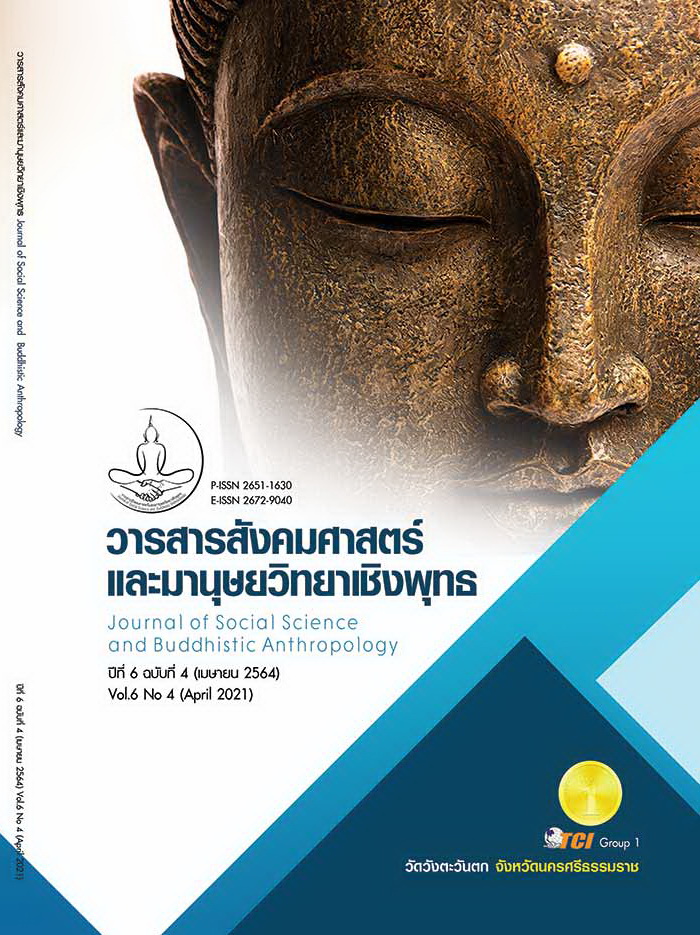Logistics system development to enhance competitiveness for Herbal products Case Study: Southern Gulf of Thailand Provincial Cluster Chumphon, Surat Thani, Nakhon Si Thammarat and Phatthalung
Keywords:
Logistics, Competitiveness, HerbsAbstract
The objective of this article is to 1) study the logistic system operation problem of herbal products. Southern Gulf of Thailand provinces: Chumphon, Surat Thani, Nakhon Si Thammarat, and Phatthalung 2) to propose a guideline for logistics system development to enhance competitiveness of herbal products Southern Gulf of Thailand provinces: Chumphon, Surat Thani, Nakhon Si Thammarat and Phatthalung Using qualitative research methods With an in-depth, semi-structured interview method From stakeholders in the herbal product supply chain The selection of a chain informant consisted of 1) herbal growers, 2) intermediaries, herbal plant buyers and raw materials for making herbal products, 3) herbal product producers, 4) herbal product consumers and 5) traditional healers who used the products Herbs for treatment of 29 persons were analyzed by content analysis form. The results of the research were as follows: 1) the logistic system operating problems of herbal products consisted of 1.1) problems of operating the logistic system of the herbal products in the administration 1.2) problems of the logistic system operations. 1) Herbal product logistics operation problem 1.3) Herbal product logistics operation problem 1.4) Herbal product logistics operation problem and 2) Method for developing logistics system Sticks to raise the competitiveness of herbal products, including 2.1) Development of knowledge application, herbal wisdom. To combine the old knowledge on herbs with the knowledge of modern medicine together. 2.2) Developing a network of herbal products to cooperate in solving problems and exchange knowledge, experiences, seeking solutions to problems. 2.3) Developing creativity. And innovation to create something new or to be different from others; and 2.4) to develop community engagement to help and support community entrepreneurs.
References
ภิษณี วิจันทึก. (2563). ปัจจัยที่มีความสัมพันธ์กับพฤติกรรมการใช้ผลิตภัณฑ์สมุนไพรของประชาชน บ้านหนองบัวศาลา จังหวัดนครราชสีมา. วารสารวิทยาลัยพยาบาลพระปกเกล้า, 31(1), 12-21
รัชนี เพ็ชร์ช้าง (2559). การบริหารจัดการธุรกิจสมุนไพร เพื่อส่งเสริมอาชีพท้องถิ่น จังหวัดอุตรดิตถ์ แบบครบวงจร. วารสารวิจัยเพื่อการพัฒนาเชิงพื้นที่, 8(1), 57-72.
วลีรักษ์ สิทธิสม. (2554).การศึกษาสภาพการบริหารจัดการสินค้า OTOP ในจังหวัดนนทบุรี. วารสารครุศาสตร์อุตสาหกรรม, 10(2), 117-125.
สุรศักดิ์ อำนวยประวิทย์.(2559).กลยุทธ์การเข้าถึงแหล่งเงินทุนของผู้ประกอบการวิสาหกิจขนาดกลางและขนาดย่อมในเขตพื้นที่กรุงเทพมหานคร การเข้าถึงแหล่งเงินทุนของผู้ประกอบการ.วารสารวิชาการ RMUTT Global Business and Economics Review, 11(1), 1-14
Adler, P. S., & Kwon, S. W. (2002). Social capital: Prospects for a new concept. Academy of management review, 27(1), 17-40.
Al Saifi, S. A. (2015). Positioning Organizational culture in knowledge management research. Journal of Knowledge Management, 19(2), 164-189.
Barraket, J., & Archer, V. (2010). Social inclusion through community enterprise: Examining the available evidence. Third Sector Review, 16(1), 13-28.
Borozan, D., &Funaric, M. R. (2016). Social capital in Croatia: Measurement and regional distribution. Innovation: The European Journal of Social Science Research, 29(4), 481-505.
Blair, D. C. (2002). Knowledge Management: Hype, hope, or help. Journal of the American Society for Information Science and Technology, 53(12), 1019-1028.









